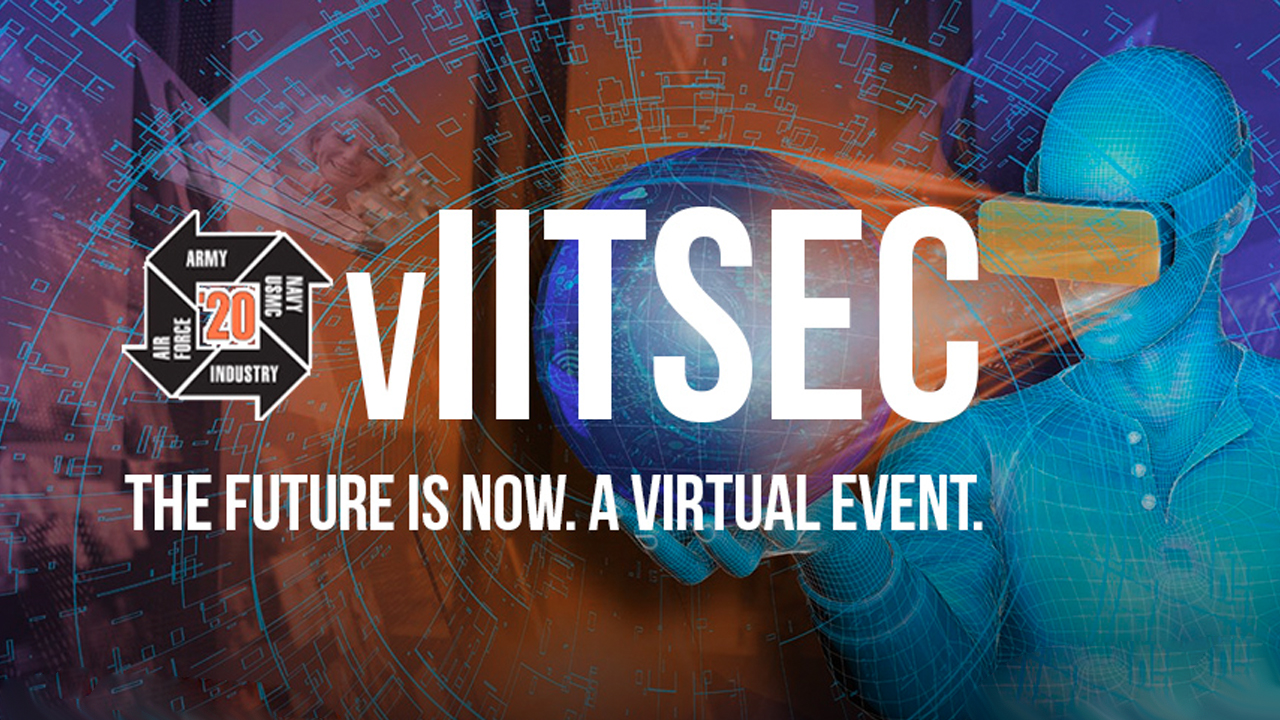At this year’s virtual Interservice/Industry Training, Simulation and Education Conference (vIITSEC), two Charles River scientists will be presenting their teams’ latest results on projects for training medical personnel. These results show how advanced technology training solutions can improve trainees’ teamwork, communication, logistics, and clinical skills.
Held from November 30-December 4, I/ITSEC has for many years been an important annual event for Charles River Analytics, whose training R&D efforts span a wide range of applications. These efforts range in maturity from initial feasibility studies to currently deployed systems, in active use by US government and military agencies, and across domains including aircraft maintenance operations, megacity disaster response, cyber warfare, image analysis, sonar operation, personal protective equipment (PPE) use, and bystander intervention.
Through participation in the conference, our scientists are excited to share, partner, and collaborate with other researchers and organizations on existing training projects and new training needs.
Training Everyone, from Medics to Mechanics
Both of the company’s presentations at vIITSEC will focus on medical training. Scientist Benjamin Bauchwitz will present results from the EFECTIVE project, which investigates how to train medical personnel to respond in “austere” environments; that is, environments challenged by enemy activity, resource depletion, and lack of safe spaces. These environments require medical personnel to provide an unusually prolonged level of field care, where they are unable to rely on field evacuation.
The EFECTIVE team’s research results have yielded an initial training solution, including multiple training scenarios, an identification of critical skills needed by medical, logistics, and mission command personnel, and objective metrics for assessing proficiency on these skills when practiced in a simulation environment.
Cognitive scientist Ashley McDermott will present results on how medical teamwork can be trained with the use of a single-player game, where AI-driven teammates enable practice of team communication, teamwork, and leadership skills.
At vIITSEC, we will present research that informs how medical team members can use single-player games to improve the effectiveness, situational awareness, and communication skills of their team
In addition to medical training, Charles River has developed training solutions for multiple other domains. One solution in active use is MAGPIE Avionics, a training solution deployed by the 365th Training Squadron at Sheppard Air Force Base in Wichita Falls, Texas, where they teach service members how to maintain F-15E avionics.
The MAGPIE software system uses modern game-quality graphics to reproduce real-life aspects of F-15E maintenance. MAGPIE is both a virtual reality (VR) training system for F-15E aircraft maintainers, and a framework that can be used to create training apps for other needs.
MAGPIE has delivered an estimated 50% reduction in training time for a “Safe for Maintenance” training block, according to an F-15E Training Manager
Many Training Solutions, One Framework
Charles River scientists have developed a common framework for creating specialized training solutions. This framework applies formal methods to systematically analyze and identify the skills that must be acquired, then creates simulation tools that immerse trainees in relevant scenarios so the necessary skills can be transferred and learned. Immersion is accomplished with cutting-edge software design, using augmented and virtual reality as well as leading game engines for 3D graphics rendering.
In a Charles River medical training simulation, trainees are immersed in a high-fidelity representation of a trauma scenario
According to Peter Weyhrauch, Vice President of the Human-Centered Intelligent Systems division, the core principles of the Charles River training solutions are intelligence and adaptability. Intelligent training solutions provide individuals with training customized to their particular strengths and needs, improving learning throughput and engagement. Adaptive training tracks trainee performance and provides objective feedback, increasing learning speed and reducing instructor burden.
The company’s training research is supported by its adjacent portfolio of projects in the domains of cognitive science, human factors, and artificial intelligence. To learn more about other projects presented and discussed at I/ITSEC in previous years, see: I/ITSEC 2019, I/ITSEC 2018, I/ITSEC 2017, I/ITSEC 2016.
Learn more about how we can make adaptive intelligent training work for you! Schedule a demo with us.





